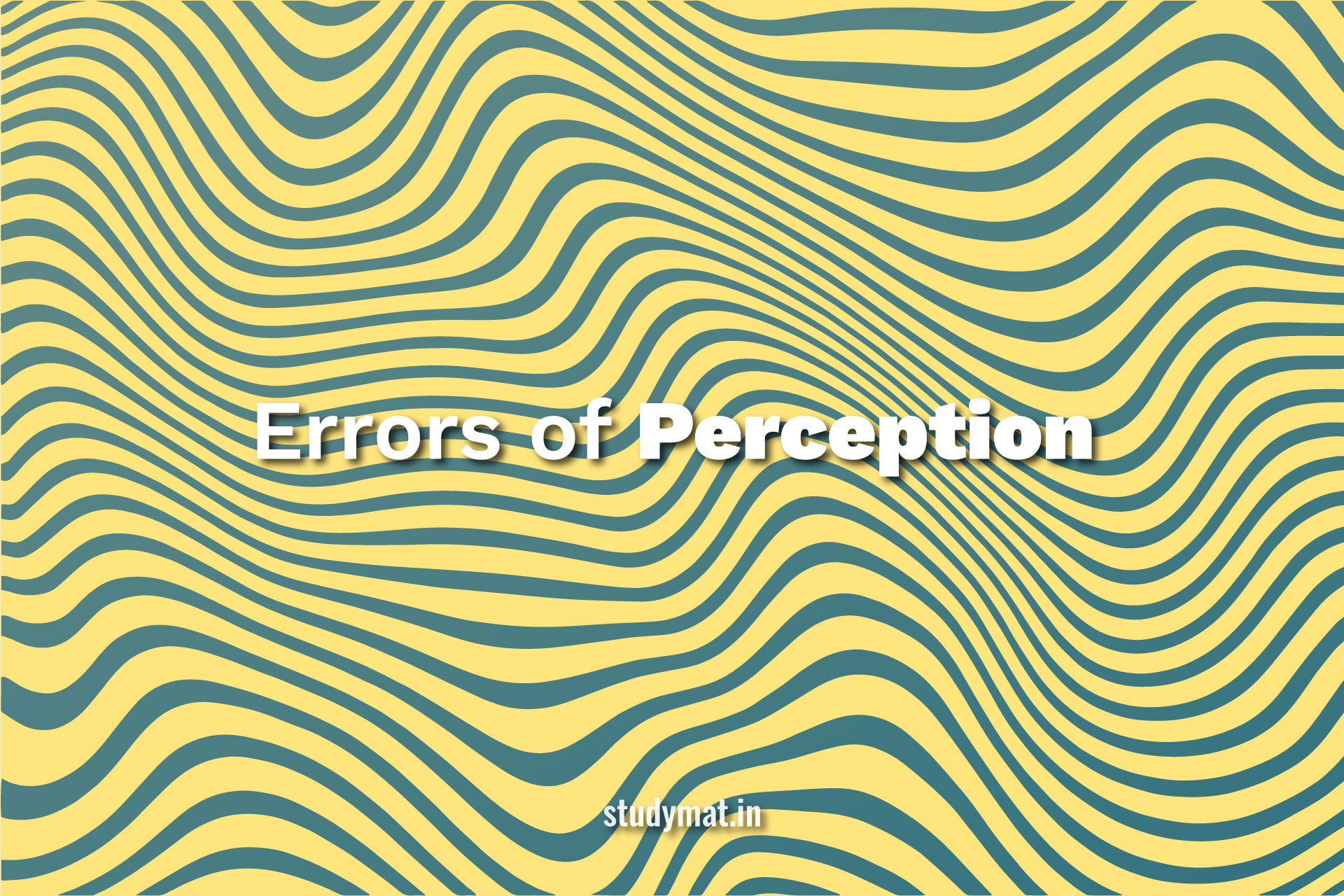In this article, we will discuss What is Perception? Discuss the Types and Errors of Perception.
Errors of Perception.
Perception is the process of analyzing and understanding a stimulus the same way. But it may not be always possible to perceive the stimuli as they are. We mistake the stimulus and perceive it wrongly, knowingly or unknowingly.
It may be due to defects in our sense organs or defective functioning of the brain. Many times the biases in the individual, unfavourable background, time of perception, lack of clarity of stimulus, conflict in mind, confusion, and such other factors are responsible for errors in perception. There are two types of errors:
1. Illusion
Illusion is a false perception. Here, an individual perceives a stimulus incorrectly. For instance, a rope is mistaken as a snake or vice versa in the dark. The voice of an unknown person is mistaken as a friend’s voice. A person standing at a distance who was unknown can be perceived as a known person.
Most of our illusions are Visual and Auditory. But illusions about other senses are also possible.
2. Hallucination
Sometimes we come across occasions where the individual perceives some stimulus, even when it’s not present. This phenomenon is known as hallucination. The person may see an object, person, etc. or she/he may listen to some voice however there are no objects and sounds in reality.
Hallucinations relate to all the sensations that appear to people, but visual and auditory hallucinations are more common. Generally, individuals with unsound minds, alcoholics, emotionally disturbed, and those who are in confused states may experience hallucinations. Though, among abnormal and intoxicated people, hallucinations are very common.
In addition to these errors, abnormalities in our sense perceptions may also occur and are known as Hyperesthesia (excessive sensation), Anesthesia (no sensation), and Paraesthesia (distorted or wrongly localized sensation). In these cases, the tangible sensation is perceived wrongly.
Follow us:
If you like this article, you can Follow us on Facebook.
Also, you can Join our Official Facebook Group for QnA Sessions and Discussions with the worldwide IGNOU community.

